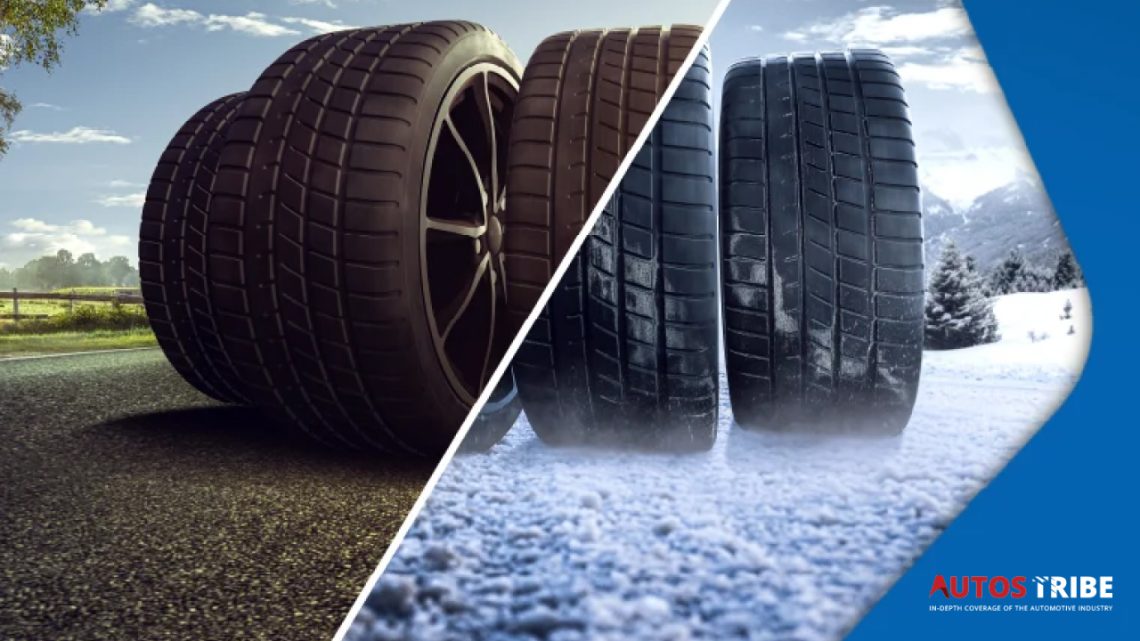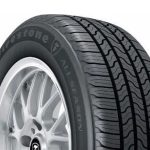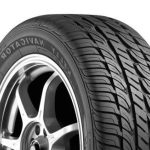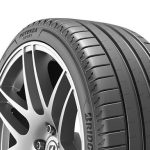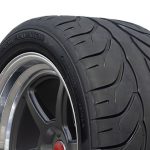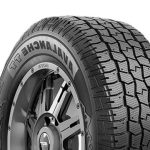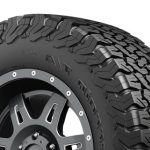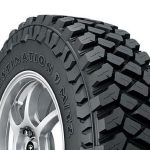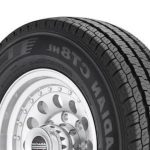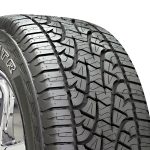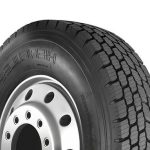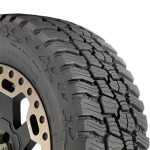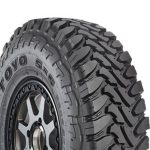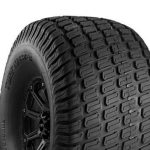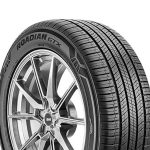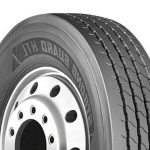A tire, as automobiles, comes in different shapes, sizes, and threshold. It a common challenge to understand the different types of tires when buying. Hence, its best to first examine your vehicle and assess your driving needs for assuring which one will work better for you.
If we talk about ourselves, what tires would suit us and what to buy, let’s consider the needs. You like to get to your destination with ease and comfort? Are you an intense terrain/off-road rider? Are you adventure lover who drives in harsh roads and extreme weather condition? We’ve got you covered. Check out our guide for different types of tires to cater your specific needs:
Table of Contents
What are the Different Types of Tires?
A tire is so much more than an air-filled rubber matter that’s round in shape. Tire is indeed a complex piece of engineering that comes in many shapes and forms. They are designed to tackle a bunch of challenges in outer world. There are some of the top leading brands in the world that manufacture best quality tires in different sizes and types, you can check those here:
Tires can be distinguished basically of two types: the rubber compound and the tread pattern. Both of the types are made to be used in different environment and conditions. The quality matter and hence you need to make sure its made from the right tire technology. Once your tire is of right type and made with concerned tire technology, you can rest assure that your vehicle will be having higher traction and good handling.
Now let’s explore about the types of tires:
Passenger Tires – Sedans, Minivans, and CUVs
Sedans, minivans, and crossover utility vehicles (CUVs) our passenger comfort vehicles. They come with comfort easiness and fuel efficiency along with overall safety the different types for these vehicles below:
All-Season:
These are the most popular choices for sedans, minivans, and CUVs. All season tires almost handle everything like rain light snow or dry pavements or roads.
They also offer moderate tread life, reasonable handling and a quiet ride so you can comfortably get around the road.
These are designed to provide a good balance of performance in various conditions hence making it a perfect choice for everyday driving. These are best to take your family on a road trip without worrying about the weather changing.
Touring:
These are also known as ‘grand touring tires’ and considered as a luxurious option for your car. These have a higher speed rating and better handling characteristics.
So, they are better for highway driving and long road trips. If you spend a lot of time traveling around the town or traveling long distances, these are comfortable and most compatible tires out there.
These are basically designed for long distance comfort and durability to provide a smoother and quieter ride compared to standard all-season tires.
Performance:
These tires are suitable for thrill lovers. Performance tires are designed for enhanced handling and responsiveness on every twist and turn on the road specifically an exciting one.
In dry conditions, they offer a higher speed rating and better grip to better enjoy the adventure.
So, if you are a driver of performance oriented CUV or drive a sporty sedan, these are the best compatible tires for you. However, these high performance tires can be a nicer choice than touring or all season tires and they might wear out faster.
Summer:
These are specifically made for warm weather. Areas with higher temperatures are preferable to drive vehicles with summer tires.
These tires are designed to provide excellent traction and handling on dry and wet roads but they are not for cold or snow conditions.
These are perfect for those who want the best possible grip and responsiveness from their sedans or CUVs when the sun is tempting hot. So, if you live in an area with hot summer or mild winters, summer tires can significantly enhance your vehicle performance during the warmer months.
Winter:
As the name suggests, these are specifically designed for cold weather and snowy conditions. Winter tires are manufactured with a unique thread pattern and rubber compound that stays flexible in low temperatures.
These tires are made to provide superior grip and breaking performance and snow and ice. So if you live in an area with harsh winters or snowy conditions these tires are best compatible for your vehicle. These are best for your own safety and overall handling of your driving experience.
Truck and SUVs Tires
Tire selection is even more critical and crucial when it comes to trucks and SUVs. Because these vehicles are used for diverse range of activities. Whether you are driving with heavy loads or driving in challenging weather conditions, the right choice can make all the difference. Let’s explore more about tires for trucks and SUVs:
All-Terrain:
These are the first choice for drivers who experience on and off-road driving. All terrain tires are designed to provide a smoother experience for both on road and off road driving.
It provides a good balance for off-road driving and comfort for on road experience they are manufactured with a more aggressive tread pattern than all season tires hence the offer better traction on sand and dirt.
Also, these are best for maintaining a reasonable ride quality and noise level on highways so if you enjoy weekend adventures as well and still use your vehicle for daily commutes all terrain tires are a reliable option.
Mud-Terrain:
Mud-terrain tires are built for off-road adventures. These are manufactured with large and chunky tread blocks so that they can dig in soft, muddy, or rocky surfaces.
Hence, they provide excellent traction in extreme conditions no matter what. However, these tires are more noisier and less smoother on pavement and they wear out faster due to their aggressive tract.
This comes at a cost of on road comfort. So, if your truck or SUV spends most of the time off-road on muddy, soft, or rocky surfaces, mud terrain tires are a perfect choice.
Highway:
Highway tires offer a smooth and quiet ride long tread life and good fuel efficiency. These are basically optimized for on-road driving.
These tires are ideal for SYVs and trucks that majorly covers commuting long distance travel or light towing. They are designed in a way that they provide excellent handling and stability on paved roads. These are best choice for drivers who rarely gets on off road.
All-Season:
Same as passenger vehicles, all-season tires for trucks and SUVs provide a balanced performance in various conditions. These are suitable for drivers who face mild weather conditions and occasional off-road driving.
All season tires are a good all-round choice for SUV and truck owners as they offer decent traction in wet and dry conditions. These are good for all seasons except driving in extreme weathers for longer times. All season tires for trucks and SUVs also provide a moderate performance in light snow.
Winter:
If you face toughest winter conditions during your commutes, winter tires for trucks and SUVs are the best choice.
Same as passenger winter tires, they comes with unique rubber compound that remains flexible in freezing temperatures.
Winter tires comes with a tread pattern that is specifically designed to grip snow and ice better. Best in extreme weather conditions specifically winters, snow and ice. These winter tires ensures maximum safety and performance.
Performance:
As the name suggests, performance tires for trucks and SUVs are an excellent option in sporty adventures. They are designed for high quality stability and precise handling with breaking capabilities.
However, they might sacrifice some comfort and tread life compared to all-season or highway tires. They are perfect for performance oriented SUVs and trucks that are used for aggressive driving styles.
Check out the driving safety guidelines by National Highway Traffic Safety Administration and the Department of Transportation.
Related Pick: Ultimate Truck Tires For Commercial Use [2024]
Different Types of Specialty Tires
These tires cater to specific vehicles while offering tailored performance and functionality. Here’s a breakdown of various specialty tires and their unique characteristics:
ATV/UTV:
ATV (All-Terrain Vehicle) and UTV (Utility Terrain Vehicle) tires are designed for off-road adventures. They provide traction and durability in rugged terrain.
Such tires feature aggressive tread pattern with deep lugs to grip uneven surfaces like mud, rocks, and sand. They also have side walls to withstand impacts and punctures encountered during off road driving.
ATV/UTV tires comes in different designs suitable for various terrains. Such as from trail riding to mudding and rock crawling, these are customized for specific off-road challenges.
Lawn, Garden, and Golf:
The lawn and garden tires are specifically crafted for small vehicles used in landscaping gardening and golf course maintenance. These tires are designed to provide low ground pressure to minimize turf damage while providing traction and stability.
These tires feature turf-friendly tread patterns with shallow grooves to prevent grass tearing and ensure a smooth ride. Lawn and garden tires come in various sizes and load capacities to accommodate different equipment. Such as lawn tractors, utility carts, and golf carts.
Spare:
Spare tires serve as emergency replacements for flat or damaged tires. They provide temporary mobility until the original tire can be repaired or replaced. These are typically compact and lightweight to fit in a designated storage area within the vehicle.
Spare tires comes in different configuration, including full-size spares, temporary spares, and collapsible space-saver spares. Full-size spares offer identical performance to regular tires but require more storage space. While temporary spares sacrifice performance for space efficiency.
Collapsible space-saver spares feature are compact design that maximizes trunk space but provide limited driving capability at reduced speeds and distances.
Trailer:
These tires are manufactured to support heavy loads and withstand the unique demand of towing trailers, campers, boards, and utility haulers.
Trailer tires feature construction with sticker sidewalls to handle vertical and lateral forces exerted by the trailer’s weight and movement. These tires comes in radial and bias-ply designs. Each of these offer specific benefits in terms of load capacity, durability, and heat resistance.
They also have specialized tread patterns optimized for highway stability and water dispersion. These tires ensure safe towing and breaking performance under varying road conditions.
Conclusion
Choosing the right type of tire depends on your vehicle, driving habits and the conditions you typically encounter while venturing on the road. Whether you are driving a sedan, minivan, CUV, truck, SUV, or you need specialty tires, selecting the right tire will change the game. Also, there are some Federal Motor Vehicle Safety Standards for Tires that you may check before choosing any of these. The major of them might include using tire inflators and checking car tire pressure to prevent any mishap while driving. Hence, understanding your options will help you make an informed decision for a safer and more comfortable ride.
